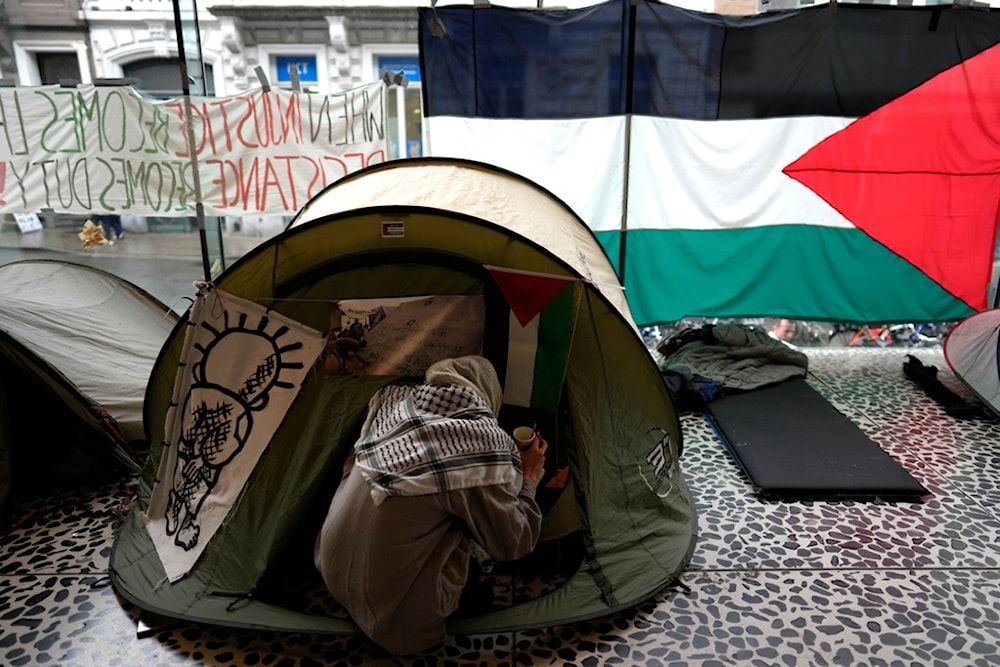Belgium's UGent severs ties with three Israeli institutions over Gaza
The rector of the University of Ghent says the institutions were "very problematic", according to the University's human rights test.
-

A woman peers into a tent in an encampment, set up by pro-Palestinian students and activists at Ghent University, in Ghent, Belgium, on Thursday, May 16, 2024. (AP)
The University of Ghent (UGent) in Belgium is cutting ties with three educational and research institutions in the Israeli occupation entity that it says no longer align with its human rights policy, according to the university's rector.
Pro-Palestinian protesters in Ghent have been demonstrating against the Israeli aggression on the besieged Gaza Strip and have taken control of parts of the university since early this month.
Rector Rik Van de Walle mentioned that UGent is ending its partnerships with the Holon Institute of Technology, MIGAL Galilee Research Institute, and the Volcani Center.
BREAKING: University of Ghent in Belgium cuts ties with Israeli research centers after student mobilization.
— sarah (@sahouraxo) May 16, 2024
🇵🇸🔥pic.twitter.com/8GRrcd4kvi
"We currently assess these three partners as [very] problematic according to the Ghent University human rights test, in contrast to the positive evaluation we gave these partners at the start of our collaboration," Van de Walle stated.
An investigation conducted by the University found that partnerships with MIGAL Galilee Research Institute and the Volcani Center "were no longer desirable" due to their affiliations with Israeli ministries.
Meanwhile, collaboration with the Holon Institute was also deemed "problematic" because it provided material support to the Israeli occupation military for operations in Gaza.
A University spokesperson indicated that UGent's decision would impact four projects.
Protesters told Belgian broadcaster VRT that they welcomed the decision but viewed it as only a first step, pointing out that they plan to continue their actions "until UGent breaks its ties with all Israeli institutions."
The demonstration reflects similar movements by pro-Palestinian students in the United States and Europe, who are calling for an immediate, permanent ceasefire in Gaza and for their educational institutions to sever financial ties with companies that profit from the Israeli war on the Palestinian people.
As student protests and movements increasingly gained momentum in the US, arrests were made as police tried to thwart their efforts, and the government mobilized to introduce legislation that would ultimately punish those participating.
Pro-Palestinian advocates have established encampments or conducted sit-ins at more than 100 college campuses across approximately 40 states.
In response, authorities have made nearly 3,000 arrests, amid employing tear gas, instances of police brutality, and even firing rubber bullets at peaceful student protesters.
Soon after, the US protests spread elsewhere, mainly in Europe.
Read more: Belgian region follows Japan's suit, suspends munitions to 'Israel'

 3 Min Read
3 Min Read








